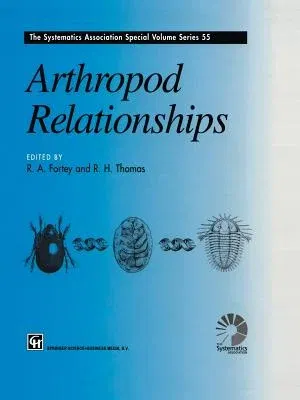Arthropod Relationships (Softcover Reprint of the Original 1st 1998)Paperback - Softcover Reprint of the Original 1st 1998, 12 November 2012

Qty
1
Turbo
Ships in 2 - 3 days
In Stock
Free Delivery
Cash on Delivery
15 Days
Free Returns
Secure Checkout
Part of Series
Systematics Association Special Volume
Print Length
383 pages
Language
English
Publisher
Springer
Date Published
12 Nov 2012
ISBN-10
9401060576
ISBN-13
9789401060578
Description
Product Details
Book Edition:
Softcover Reprint of the Original 1st 1998
Book Format:
Paperback
Country of Origin:
NL
Date Published:
12 November 2012
Dimensions:
27.94 x
20.96 x
2.08 cm
ISBN-10:
9401060576
ISBN-13:
9789401060578
Language:
English
Location:
Dordrecht
Pages:
383
Publisher:
Weight:
893.58 gm

